Understanding What a High Ticket Sales Program Is
High ticket sales refer to selling premium products or services that typically range from $2,000 to $20,000 or more. Unlike traditional sales, these transactions rely heavily on emotional connection, trust, and value-based communication. A high ticket sales program is designed to train individuals to master these high-level sales conversations, guiding them through advanced psychology and persuasion strategies. In this space, you’re not simply selling a product—you’re providing transformation. The buyer isn’t just making a purchase; they’re investing in a meaningful outcome. As more businesses shift online, the demand for skilled high ticket closers has grown rapidly. These professionals play a key role in helping coaches, consultants, and service-based entrepreneurs convert leads into loyal, high-paying clients. Fortunately, there are now free programs available that teach these skills without the financial burden of paid certifications.
Why Free High Ticket Sales Training Exists
Many people wonder why some organizations offer a high ticket sales program free of charge. The truth is, free doesn’t always mean low quality. Many companies use free training as a way to attract aspiring sales professionals into their ecosystem. These programs often serve as a bridge—allowing learners to experience real training, gain trust in the brand, and eventually explore advanced paid mentorship options later on. Some coaches and agencies also provide free programs to train closers for their own internal teams. Others use affiliate or partnership models where both parties benefit from the arrangement.
A free program benefits both sides:
- Learners gain high-value training without financial risk
- Mentors expand their professional network
- Companies identify talented closers to join their team
- Participants can test if the sales field is right for them before committing money
By removing cost barriers, these programs open doors for ambitious individuals who want to start strong in the high ticket sales world without breaking the bank.
What You Can Expect to Learn in a Free High Ticket Sales Program
A legitimate high ticket sales program free of charge still covers essential sales psychology and communication skills. You’ll start by understanding the emotional triggers that drive people to make expensive decisions. Then, you’ll learn how to prospect, qualify leads, and determine whether a potential client is the right fit for a premium offer. Many programs also teach you how to conduct discovery calls that uncover the real pain points and desires of your prospects.
You can also expect to master:
- The art of value-based selling rather than price-driven tactics
- Building rapport quickly and authentically
- Handling objections with empathy and logic
- Crafting win-win solutions that align client goals with business value
- Developing confidence and consistency through mindset training
These lessons go beyond simple sales scripts. They teach emotional intelligence, communication mastery, and the ability to close deals in a way that feels natural and ethical. The result is a more fulfilling sales process—for both the seller and the buyer.
How to Find a Legitimate Free High Ticket Sales Program
With so many training options online, it’s important to be selective. Not every “free” program is truly cost-free or high quality. Some might use free training as a front to push you into expensive upsells. To find a legitimate program, look for transparency and structure. Reputable programs clearly outline what’s included, who the instructors are, and how the training works.
Here’s how to spot a trustworthy program:
- It offers clear learning outcomes and practical modules
- Instructors have verifiable experience in the sales field
- No hidden fees or mandatory upgrades are required
- Reviews and testimonials mention real learning experiences
- The content focuses on actionable skill-building, not hype
When you research potential programs, take time to verify the credibility of the source. Join communities or forums where other aspiring closers share their feedback. Trust your instincts—if something feels off or overly “pushy,” it probably is.
Building Your Career After Completing a Free Program
Once you finish a high ticket sales program free of charge, your next step is putting what you’ve learned into action. Start by building your online presence through LinkedIn or professional networks. Showcase your new skills by engaging with coaches, consultants, and entrepreneurs who often seek commission-based closers. Many new closers find their first opportunity through online job boards or referrals.
To advance your career, focus on these steps:
- Apply to programs that match your niche interests
- Practice mock calls with peers or mentors
- Build a portfolio of client interactions or successful calls
- Seek mentorship from experienced closers
- Continue refining your communication and negotiation skills
Remember, success in high ticket sales depends on more than talent—it’s about discipline, empathy, and continuous learning. The more you practice, the more confident and effective you become.
Common Mistakes Beginners Make in High Ticket Sales
Even the best free programs can’t protect learners from common pitfalls. One frequent mistake is focusing too much on commissions instead of client transformation. High ticket sales thrive on connection, not pressure. Another common error is neglecting follow-up. Many prospects need multiple interactions before saying yes, and failing to follow up can cost you thousands in potential commissions.
Beginners also tend to:
- Use aggressive tactics instead of consultative selling
- Talk too much and listen too little
- Ignore client objections instead of addressing them
- Underestimate the importance of personal growth
- Forget that emotional intelligence drives every successful close
Avoiding these mistakes helps you stand out as a professional who truly cares about your clients’ outcomes.
How to Stand Out in the Competitive World of High Ticket Sales
The high ticket sales field is competitive, but authenticity and strategy set top performers apart. Instead of trying to sound overly polished, focus on being real. Clients invest in people they trust. That means your communication should always be clear, confident, and genuine. Storytelling also plays a major role—share real-life examples that illustrate the transformation your offer provides.
To distinguish yourself, make use of:
- Personalized outreach that shows genuine understanding of client goals
- CRM tools to track communication and follow-ups
- Video calls to build stronger human connection
- Mentorship to continually refine your pitch
- Feedback loops that help you identify and fix weak spots
When you position yourself as a trusted advisor rather than a salesperson, you naturally attract more clients and close higher-value deals.
Best Free Resources to Complement Your High Ticket Sales Training
Even after completing a high ticket sales program free of charge, you should continue developing your skills. The best salespeople are lifelong learners who keep refining their craft. Fortunately, there are many additional free resources that can help you deepen your knowledge and sharpen your technique.
Consider exploring:
- Free masterclasses from reputable coaches on platforms like YouTube or LinkedIn
- Podcasts that discuss advanced sales psychology and communication
- Community groups or online forums dedicated to high ticket sales discussions
- Roleplay groups that simulate real-world closing situations
- eBooks and newsletters that provide new insights and strategies
These resources, when combined with practical experience, can help you grow into a confident, professional closer capable of handling any premium sales conversation.
FAQ
1. Is a free high ticket sales program really worth my time?
Yes. A credible free program can provide a strong foundation in sales psychology, communication, and ethical persuasion without financial risk.
2. How long does it take to see results?
Results vary, but most learners begin noticing improvements in mindset and closing ability within four to eight weeks of consistent practice.
3. Do I need sales experience to join a free high ticket program?
No prior experience is required. Many programs start from the basics and gradually introduce advanced techniques.
4. Can I make money after completing a free program?
Yes. Many graduates find opportunities through remote sales roles, affiliate partnerships, or independent contracting positions.
5. What’s the main difference between free and paid programs?
Paid programs might offer one-on-one coaching or certification, but a free program can still deliver valuable skills if it’s run by reputable trainers.
Takeaway
A high ticket sales program free of charge gives you a unique opportunity to enter one of the most lucrative fields in the modern economy without financial pressure. It’s a doorway to personal growth, professional development, and potential income freedom. By choosing the right program, applying consistent effort, and continuing to learn from free resources, you can transform your ability to communicate, influence, and close deals with confidence. In high ticket sales, your investment isn’t money—it’s time, discipline, and the drive to master one of the most valuable skills in business.











